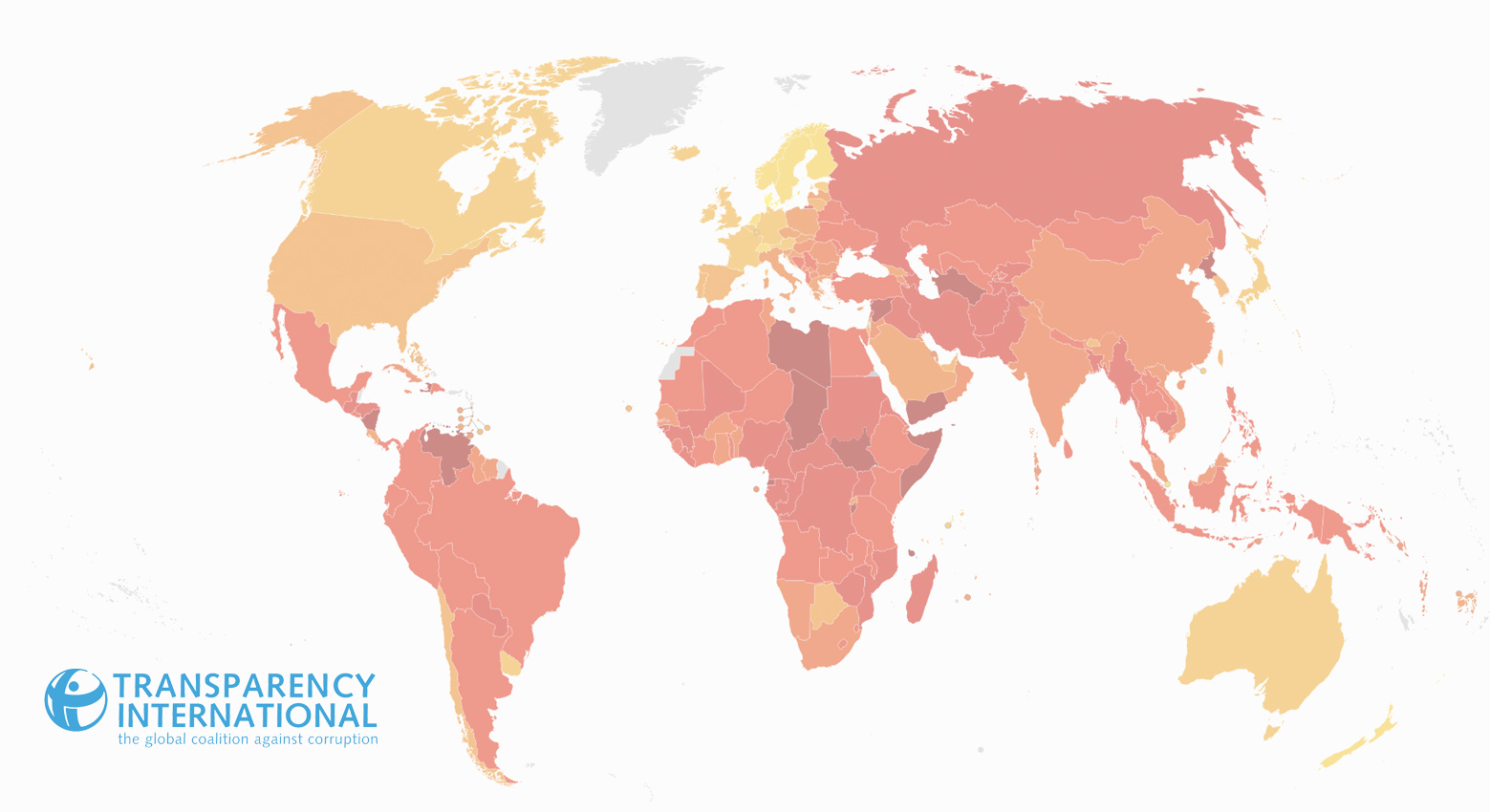

CPI 2022: Bahrain’s progress and the situation of Arab countries - Sharaf al-Moussawi
Introduction
The Corruption Perceptions Index (CPI) has been published annually by Transparency International (TI) since 1995. It has become one of the preeminent global indicators of the environment that helps spread corruption in the public sector. Several international and academic institutions have adopted it in their research and studies. On the other hand, its positive impact on attracting foreign investments encourages countries to improve their ranking from year to year.
On 31 January 2023, TI published the 2022 CPI, covering 180 countries and regions worldwide. It was prepared by TI-accredited research centers, relying on 13 different data sources from 12 institutions that submit their reports independently. The CPI reflects the evaluation of experts and executive officials at the global level for several manifestations of corruption in the public sector. Most indicators depend on investigations, studies, research, and questionnaires. However, they do not include tax evasion, money laundering, or illegal financial transfers. According to the index, countries that vigorously enforce anti-corruption laws and electoral campaign financing regulations achieve the best results. Other factors include broad participation in public political consultations and a high interest in democratic practice.
TI believes that there is a clear relationship between violence and corruption. Countries that scored the lowest in this index also received weak scores in the CPI. On the other hand, governments hampered by corruption cannot protect their citizens, and public discontent is more likely to become violent.
“Corruption has made our world a more dangerous place. As governments have collectively failed to make progress against it, they fuel the current rise in violence and conflict – and endanger people everywhere. The only way out is for states to do the hard work, rooting out corruption at all levels to ensure governments work for all people, not just an elite few,” says TI Chair Delia Ferreira Rubio.
CPI covers the following main points:
1. Bribery
2. Diversion of public funds
3. Prevalence of officials using public office for private gain without facing the consequences
4. The ability of governments to contain corruption and enforce effective integrity mechanisms in the public sector
5. Red tape and excessive bureaucratic burden may increase opportunities for corruption
6. Meritocratic versus nepotistic appointments in the civil service
7. Effective criminal prosecution for corrupt officials
8. Adequate laws on financial disclosure and conflict of interest prevention for public officials
9. Legal protection for whistleblowers, journalists, and investigators when they are reporting cases of bribery and corruption
10. State capture by narrow vested interests
11. Access of civil society to information on public affairs
12. Freedom of opinion and expression and freedom of the press, especially investigative journalism, including what is related to the publication and follow-up of corruption cases.
Other sources are used to prepare mechanisms to prevent the spread of corruption. They include
1. The government’s ability to strengthen integrity mechanisms.
2. Effective prosecution of corrupt officials.
3. Compliance with the United Nations Convention against Corruption, adequate laws governing the declaration of financial gains, preventing conflicts of interest, and access to information.
Corruption perceptions in Bahrain
In 2022, Bahrain ranked 69, improving 9 points from 2021. Its score also rose from 42 to 44. However, the improvement was not due to direct measures to reduce corruption but rather for two main reasons. The first is the improvement of procedures related to economic competitiveness, obtaining a score of 81% in the assessment of economic competitiveness. However, it scored a mere 28% on human rights. The second reason, according to TI, is that the slight change in grades does not indicate a radical development. It could be due to the weak results of lower-scoring countries. There is no evidence of direct action. “Corruption exists, but there are no corruptors,” they say. Bahrain has not tried to implement the UN Convention against Corruption. For example, it has not committed itself to adopt a law establishing the Independent Anti-Corruption Commission (although the law has been in parliament since 2010). The same goes for laws to protect witnesses and whistleblowers and the national anti-corruption strategy. Reports by the Office of Financial and Administrative Control are usually ignored.
Table 1: The development of Bahrain’s CPI between (2013-2022)
The sources used to rank Bahrain are the following
Bahrain’s parliament and government must take practical steps to improve the country’s CPI ranking, including implementing the provisions of the UN Convention against Corruption, ratified in 2010. Serious efforts must be made to address the human rights situation, which received 245 recommendations from the Human Rights Council in 2022. Bahrain must also improve its position in the democracy report (where it received 28 points), encouraging widespread engagement and legalizing political associations. It needs to lift the political isolation of many of its citizens. The recent elections in 2022 deprived many citizens of participating, which will impact Bahrain’s rank in 2023.
The following reforms are also required:
1. Adopt a law establishing an independent anti-corruption commission.
2. Adopt a law on the right to information.
3. Adopt a law to protect witnesses and whistleblowers.
4. Establish an independent High Commission to administer the elections.
5. Issue a national anti-corruption strategy to be prepared with the participation of civil society and the business sector.
6. Address the human rights situation and the Human Rights Council’s recommendations.
7. Lift the pressure and harassment faced by CSOs, allowing them more freedom and providing them with financial and moral support to implement their programs and projects to develop society.
8. Develop and promote a culture of integrity, especially in politics.
Rankings of Arab Countries
Arab countries continued to score low, with an average of 33/100, and the region needs to develop anti-corruption tools. As with previous years, the UAE remained in first place in the Middle East and ranked 27th globally. However, its score declined from 69/100 in 2021 to 67/100 in 2022. Qatar ranked second in the Arab world and 31st globally, with a score of 58, falling from 63/100 in the previous year, a decline of 5 points. It was followed by Saudi Arabia in third place (54th globally), with a score of 51/100, a drop of two points from the previous year. Jordan ranked fourth, with a score of 47/100. On the other hand, Arab countries suffering from military conflicts or security problems scored the lowest, such as Libya (17/100), Yemen (16/100), Syria (13/100), and Somalia (12/100), which ranked 171st, 176th, 178th, and 180th, respectively.
The index and various studies prepared by TI in the past years indicate a high correlation between corruption and countries’ respect for human rights. Those who do not respect them enough and do not care for democracy and integrity fall at the bottom of the CPI. TI sheds light on the link between human rights and democracy, on the one hand, and corruption, on the other. Corruption flourishes where public freedoms, especially freedom of opinion and expression, are under pressure.
According to TI, military and security spending in Arab countries allows money to be spent without public control. Corrupt actors can make considerable profits in a region with so many conflicts. Thus, most countries are classified as “very high risk,” even those not involved in military conflicts.
According to TI’s assessment of corruption in Arab countries this year, there is an “urgent need for reforms” and ending the cycle of violence and corruption. Leaders across the Middle East and North Africa must reverse the trend of tyranny and open the way for everyone to participate in decision-making. In addition, state institutions must be in place to combat corruption and support those who need it the most instead of draining public resources to consolidate the power of the elite few. After years of stagnation, the decline in this year’s CPI should serve as a wake-up call for urgent reforms and the protection of fundamental rights and freedoms across the region.
Source: TI’s website
Recent publications

